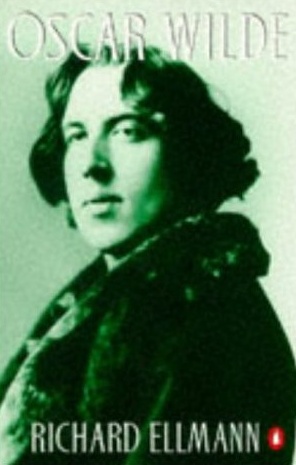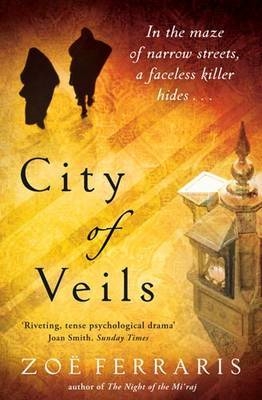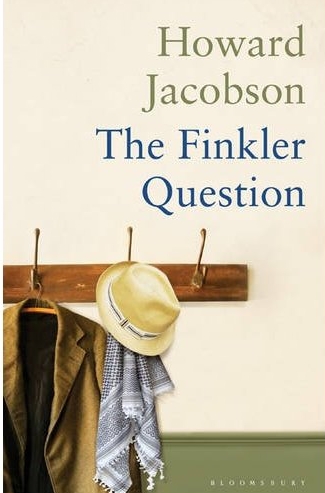 Our next guest recommender of Summer Reading is Michael Bywater, author (of Lost Worlds and Big Babies, inter al.), broadcaster, and – as you will see when you read on – now writing for the stage…
Our next guest recommender of Summer Reading is Michael Bywater, author (of Lost Worlds and Big Babies, inter al.), broadcaster, and – as you will see when you read on – now writing for the stage…
This summer I’m too too utterly utterly up to my ears in queers, dears. Specifically the (slightly illusory) late nineteenth century London homosexual world and the point at which it collides, in a flurry of ortolans’ tongues and lilies, with the largely abortive English Aesthetes.
This is no indulgence – actually at times it’s hard going – but work: I’m writing (it may sound improbable) a musical about Oscar Wilde with (equally improbably) those two giants of American popular music, the songwriting duo Leiber and Stoller.
The work itself is a treat, but Oscar himself poses three problems: his literary work was something (in England at least) of a dead end; most of the legends about him are untrue; and the world is well-supplied with Oscar mavens who’ll be on the edge of their seats, not with delight, but with anticipation of my making a mistake. So if anyone should think the phrase “Actually, I’m researching a musical” is an oxymoron, let them think again.
 Apart from Richard Ellmann’s definitive biography (Hamish Hamilton, 1987) and Merlin Holland and Rupert Hart-Davis’s edition of Oscar Wilde’s Complete Letters (Fourth Estate, 2000), the two most enlightening books about him are Oscar Wilde by Martin Fido (Hamlyn, 1973) and the lovely, gossipy, meticulous and utterly humane The Unrecorded Life of Oscar Wilde by Rupert Croft-Cooke (W H Allen, 1972).
Apart from Richard Ellmann’s definitive biography (Hamish Hamilton, 1987) and Merlin Holland and Rupert Hart-Davis’s edition of Oscar Wilde’s Complete Letters (Fourth Estate, 2000), the two most enlightening books about him are Oscar Wilde by Martin Fido (Hamlyn, 1973) and the lovely, gossipy, meticulous and utterly humane The Unrecorded Life of Oscar Wilde by Rupert Croft-Cooke (W H Allen, 1972).
 Croft-Cooke himself did time, for the crime of being what he calls “a queer”. Here he is on Wilde’s co-defendant, Alfred Taylor: “[He was] an empty-headed invert, gossipy and good-natured, a talented pianist, ‘artistic’ with all the awful implications of the word at that time, and he was to show later that he was capable of a selfless loyalty and courage which made almost everyone in the sorry prosecution of Wilde look mean and treacherous . . . A vapid innocuous queen . . . who under any sane system of legislation would be mildly derided perhaps, or accepted as a harmless anomaly. In most European countries he would have existed happily enough with his own kind, but in England in the ‘90s he was told by a learned judge that he was guilty of the worst crimes he had ever tried and sent to two years’ hard labour.”
Croft-Cooke himself did time, for the crime of being what he calls “a queer”. Here he is on Wilde’s co-defendant, Alfred Taylor: “[He was] an empty-headed invert, gossipy and good-natured, a talented pianist, ‘artistic’ with all the awful implications of the word at that time, and he was to show later that he was capable of a selfless loyalty and courage which made almost everyone in the sorry prosecution of Wilde look mean and treacherous . . . A vapid innocuous queen . . . who under any sane system of legislation would be mildly derided perhaps, or accepted as a harmless anomaly. In most European countries he would have existed happily enough with his own kind, but in England in the ‘90s he was told by a learned judge that he was guilty of the worst crimes he had ever tried and sent to two years’ hard labour.”
It’s hard for me, as a pretty unequivocal heterosexual, to understand the appeal of gay sexuality, and of course the feeling is mutual; but the idea that it should be criminalized (and there are still plenty of people who believe that) is simply incomprehensible. Terror, I suppose; pure terror. Heaven will be full of queers, no doubt, and also of judges, the devout, and family-values bigots, who will slowly begin to realise that they’ve been sent to Hell.
 Off-duty reading
Off-duty reading
In my off-duty reading, curiously, intolerance, fear and bigotry – under the guise of morality – persist. They pervade Zoe Ferraris’s two novels; City of Veils and Finding Nouf. Ferraris is an American who married a Palestinian Bedouin and lived in Jeddah.
Her subject is Saudi Arabia, that sink of unearned income, sexual segregation and the unmitigated supine terror-of-everything which is Wahabi Islam, and she draws it beautifully. To say that Ferraris enlightens her readers about the hidden life of Jeddah would be another oxymoron, because there is no light to be seen; but she does, brilliantly, make clear the reigning darkness.
 Our Roth
Our Roth
And next up: Howard Jacobson’s new novel, The Finkler Question (Bloomsbury, July 2010). Jacobson has not made a false step in the last decade or more. His energy and invention only increase with time.
I suppose when Jacobson is 96 and still producing masterpieces, we’ll eventually acknowledge that he’s a genius who puts the entire galère of hacks, poseurs and drivellistas to navel-gazing shame. He’s our Roth and we should acknowledge it. Until we do, though, just read his books. All of them. You’ll thank me for this advice.
